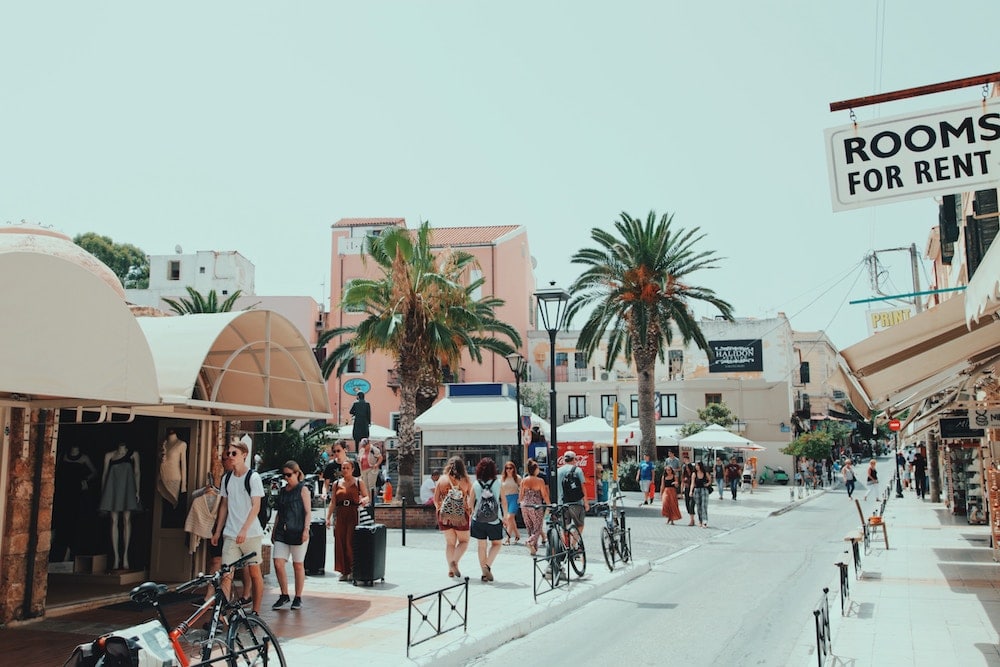Until a decade ago, the term “Airbnb” didn’t even exist. Nowadays, Airbnbs continue to grow in popularity and are beginning to leave a positive impact on many cities. These alternative accommodations have proven to be beneficial not only for the local economy but also for its citizens. As there are few restrictions on where vacation rental locations can be, often properties are located in lesser-visited areas of town that usually do not see tourists – as well as in the city center.
In particular, when we consider the tourists who visit these less well-known areas of town, it can be of a huge benefit to both business owners, hosts and guests alike. In this article, we’ll explore the many reasons Airbnb is good for the local economy and its people.
Local economy spending increases
More often than not, hotels and hostels are based in the center of towns and cities where guests have shops and dining nearby. These tourists typically stay and socialize in these central areas and do not bring as much business to other less-visited areas of town. Vacation rentals, in contrast, are a huge factor that brings visitors to other parts of town that could benefit from this tourist revenue.
According to Airbnb, 74% of properties are situated outside of the main hotel district. Of the large majority of Airbnbs which are outside of main hotel districts, guests spend 42% of their money in the neighborhoods where they are staying. There is a clear correlation, then, between the location of vacation rentals and where they go out to eat, drink and so on.
As a result, we can deduce that properties like those listed on Airbnb can directly benefit the local economy because, without them, guests would spend this 42% in city centers where hotels are.
To see some examples of the positive impact Airbnb can have, we just need to look at cities such as San Francisco, New York and Paris. In 2012, San Francisco conducted a study that found that Airbnb generates approximately $56 million in local spending and supports 430 jobs in San Francisco. Between 2012-2013, over 400,000 Airbnb guests visited New York. In one year, Airbnb generated $632 million in economic activity in the city, which included $105 million in direct spending in the outer boroughs. As for Paris, 10,000 hosts have housed over 223,000 guests, primarily renting the homes in which they live.
Hosts and guests reap the benefits
In addition to the economic impacts they have, Airbnbs are also advantageous for both hosts and the guests they host at the vacation rental.
For guests, vacation rentals pave the way to explore less touristy areas, save money and accommodate large families. According to the Airbnb Economic Impact research, 79% of travelers want to explore specific neighborhoods and 91% of travelers want to “live like a local”.
Another big benefit for guests choosing a vacation rental over a hotel is the price. Airbnbs tend to offer better value for money compared with a hotel in the same location. Additionally, they can also offer a wider price range and cater to larger families more comfortably than hotels do.
Airbnb reported huge benefits for hosts, in that hosting has helped make ends meet for many families. Their statistics show that 52% of hosts have a low to moderate income, that 48% of host income is used to pay for regular household expenses like rent and groceries and it has permitted 53% of families to afford their own home.
Of the total guest spending that was found for the research in San Francisco, $12.7 million went directly to local hosts’ households. Hosts in New York see much more activity in outer boroughs, which are areas that do not typically benefit from tourism spending otherwise. In Paris, almost half of hosts stated that they rely on Airbnb income to pay for household expenses. A further 20% of hosts say that this new source of income has allowed them to pursue other professional or personal interests, which helps to support a strong, creative and innovative society.
Service providers have more opportunities
Local service providers, such as cleaners, benefit from the boom in the vacation rental industry in many ways. By having the option of vacation rental cleaning, these service providers have the opportunity of fair pay and a wider option of jobs available. Without properties such as vacation rentals, cleaners would be restricted between choosing to work for a hotel or for a cleaning company that does home visits. Most hotels have a fixed rate for their cleaners, which may be less than what they could earn by visiting private rentals.
Now sites like Airbnb are mainstream, cleaners have the option to work on their own and choose which properties they wish to conduct business with. Through sites like TurnoverBnB, cleaners can easily connect with vacation rental hosts in their area to increase their clients.
This is an exciting time of growth and opportunity for vacation rental hosts and guests alike. As a member of the vacation rental community, you are helping travelers to experience an authentic neighborhood and the ability to live like a local. These benefits go beyond guest experience – they also improve hosts’, cleaners’ and other business owners’ livelihood.
About the Author:



